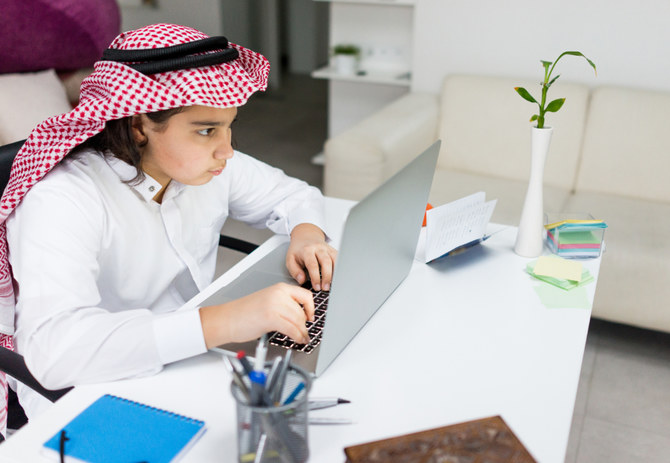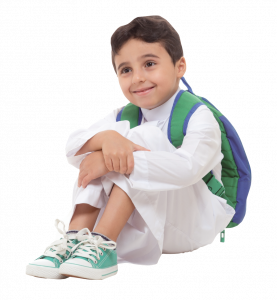
- ARAB NEWS
- 13 Jul 2025

JEDDAH: More than 18 months on from the start of the COVID-19 pandemic, children across the world continue to face challenges caused by the disruptions to their regular education and socialization. Parents, teachers, educational institutions and governments have continued to place the well-being of the younger generations at the forefront of their priorities, and World Children’s Day celebrates their achievements.
World Children’s Day has been observed annually since 1954, and is celebrated on Nov. 20. This year’s theme is “A Better Future for every Child” and is intended to focus on helping children recover from the interruptions and learning losses of the pandemic, which experts say could have long-lasting repercussions for children’s mental and physical well-being.
Hafsah Khalid, a 33-year-old Saudi teacher, told Arab News that children’s challenges during the pandemic became much more complex due to the distractions inherent in studying from home and the fact that teachers needed to make considerably more effort to get — and hold — their attention.

Another challenge was the involvement of parents. According to Khalid, many children would enlist their mother or father to help them with their schoolwork, leaving children much more dependent on the help of others than they should be. Khalid also believes that the lack of physical in-person interaction affected children’s performance levels.
“I understand that parents wanted their children to get good grades, but I feel like it disturbed the learning ability of our students,” Khalid said. “Now it’s on the staff to get them to perform well again and that is something we are most worried about.”
In October, the Saudi Ministry of Education suspended primary schools until further notice, meaning many students, parents and teachers had to return to e-learning.
Asma Khan, a Pakistani mother of two young daughters in Jeddah, said that homeschooling had been one of her toughest challenges as a mother.
“My daughter is extremely sporty and participated in every kind of physical activity while in school. Online schooling has been very difficult,” Khan told Arab News. “It was my job to make her sit in one place and concentrate while working remotely, so (my) work was doubled, because it wasn’t just the homework, it was also the schoolwork, afterschool activities, the housework and so much more.”
Thirty-five-year-old Rafeef Mohammad, a government sector worker and mother of a six-year-old girl, shared a similar experience. She said she had to work on her daughter’s motivation to study while keeping her morale up.
“We had to shift from physical activities to purely online activities, other than that we tried to do things at home and I’m not the most creative but we did our best. However, that was not enough; she wasn’t active, and she was down a lot of the time,” said Mohammed. “It was exhausting.”
At first, she tried to figure out ways to help her daughter study and memorize as much as possible. But eventually, Mohammad said, she had given up. “She does what she can and I’m proud of what she can accomplish given the major change in the learning process. If that is her limit then that’s that.”
Both mothers agreed that the shift back to regular schooling would be tough because their children have gotten used to working from home.
“We have fed the children a certain narrative and it will be extremely difficult to get them back into a physical class with students and a teacher they are physically interacting with,” said Mohammad.
Khan said she has tried to maintain some kind of discipline, assisting her daughter with preparatory work and then monitoring her during tests and exams, but not helping her. “I knew that there would be this issue, so I never gave her the option to rely on me (to do her work for her),” she explained.
Mohammad said she has been asking her daughter to arrange for her schoolwork ahead of her classes and gradually grow self-dependent ahead of her return to school. Similarly, Khan said she has been making sure that her daughter is undisturbed during class time and is learning to manage her resources properly.
Around the world, many governments and educational institutions have spared no effort to ensure children can still receive an excellent education. Saudi Arabia is no exception. Platforms such as Madrasati (My School) have been launched to help facilitate the learning experience through videos, tutorials, and notes, and children have been quick to adapt.
Majah Alsabea, an 11-year-old girl sixth grader, told Arab News that she actually preferred her online courses to regular lessons, but added, “I do miss going to classes and seeing my friends every day.”